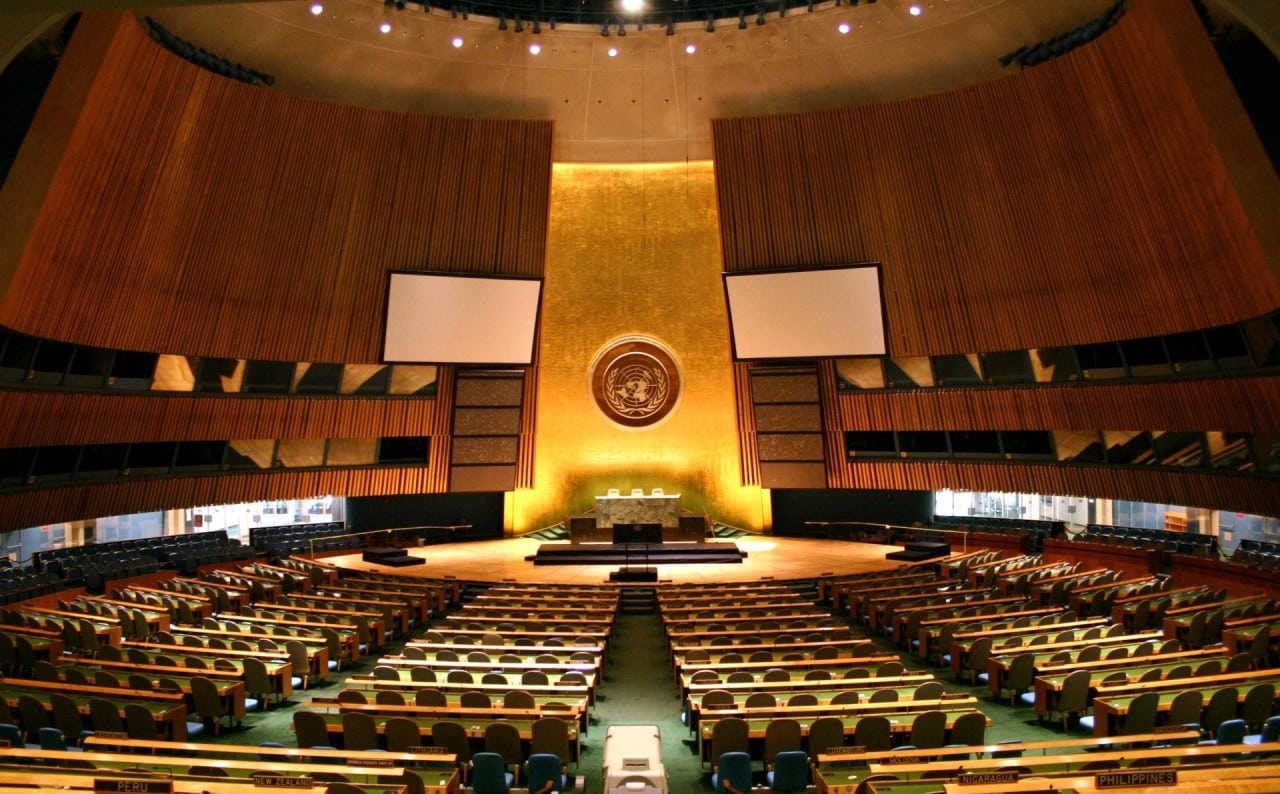
A United Nations conference today adopted its final text of a legally binding global nuclear weapons prohibition following months of negotiations on the document. One hundred and twenty-two nations voted to adopt the treaty, while the Netherlands posted the sole vote in opposition and Singapore abstained.
Participants in the negotiations broke into applause after the vote was recorded.
“It’s been seven decades since the world knew the power of destruction of nuclear weapons and since day one there was a call to prohibit nuclear weapons,” conference President Elayne Whyte Gómez, of Costa Rica, said in a London Guardian article. “This is a very clear statement that the international community wants to move to a completely different security paradigm that does not include nuclear weapons.”
The U.N. General Assembly last month resumed talks on the proposed treaty, after releasing in May a first draft that outlined prohibitions on the use, production, transfer, and testing of nuclear weapons.
Dozens of nations have boycotted the talks since the first round in March, including nuclear-weapon states Russia, France, the United States, and the United Kingdom.
Nevertheless, participating states completed a draft this week under which parties would agree never to develop, produce, possess, or stockpile nuclear weapons or other nuclear explosive devices; transfer or receive such weapons; use them; and conduct nuclear test explosions, among other related activities.
Netherlands abstained from the initial vote to convene the conference on the ban treaty but still participated in negotiations, ultimately voting against the final document. The country hosts U.S. nuclear weapons as part of the NATO nuclear weapons sharing arrangement.
The treaty text, similar to previous versions, would require member nations to declare production or possession of nuclear weapons prior to the treaty’s entry into force and to work with the International Atomic Energy Agency for verification of nuclear weapon program dismantlement.
The treaty would enter into force 90 days after the 50th instrument of ratification is deposited and would feature regular meetings of states parties to discuss progress in implementation.
The Arms Control Association released Wednesday a list of recommendations to improve the draft text. Among those, it suggested adding language about the harm caused by the production – not just use – of nuclear weapons to acknowledge the workers involved in the manufacturing process as well as impacts on the people living near production facilities.
The ACA also objected to draft language on the right of states parties to use nuclear energy for peaceful purposes, saying this is already enshrined in the Nuclear Nonproliferation Treaty and is therefore “superfluous.” The language could later be interpreted “as a license to pursue dual-use technologies for fissile material production and nuclear weapons development,” the ACA said.
The organization further called for discussions on new disarmament measures such as securing the necessary ratifications for entry into force of the Comprehensive Nuclear Test Ban Treaty; a revival of U.S.-Russian arms control dialogue; and rejection of new, “destabilizing” weapon systems.
The ACA said in a Friday statement upon adoption of the treaty that the text “should have been stronger” in areas such as safeguards and inspection requirements.
The U.N. conference will ultimately submit a report to the General Assembly’s 72nd session in September. According to the final text, the treaty will be open for signature to all U.N. states on Sept. 20 in New York.
The Trump administration, like its predecessor, maintains that such a prohibition would be impractical and destabilizing in that it would undermine U.S. extended deterrence to allies around the world and would not compel adversaries such as North Korea to abide by its terms.